Knee Pain
How to submit an article:
- Registered users can submit any published journal article that has a unique DOI (Digital Object Identifier) name or link to Research Hub.
- For example, you can paste the full DOI link:
https://doi.org/10.1109/5.771073or just the DOI name:10.1109/5.771073into the field above and click submit. - The person who is first to submit a valid article to Research Hub will forever be credited for it, and every article submission earns you +6 Research Points.
Sub-Topics:
Related Topics
Published research studies are articles that present the findings of original research that has undergone a peer-review process and has been made publicly available in scholarly journals, books or other media.

Effectiveness of a Cucumber Extract Supplement on Articular Pain in Patients with Knee Osteoarthritis: A Randomized Double-Blind Controlled Clinical Trial
2022 Dec 30 Applied Sciences Pérez-Piñero S, Muñoz-Carrillo JC, Victoria-Montesinos D, García-Muñoz AM, Ávila-Gandía V, López-Román FJ
The study concludes that cucumber extract supplementation leads to a decrease in pain intensity, improvements in physical function, and decreased levels of inflammatory and cartilage degradation biomarkers.
Randomised Controlled Trial Knee Osteoarthritis Cucumber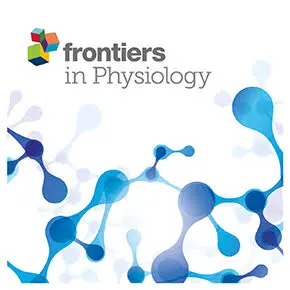
An Overview of Systematic Reviews of Moxibustion for Knee Osteoarthritis
2022 Feb 03 Frontiers in Physiology Yin S, Zhu F, Li Z, Che D, Li L, Feng J, et al.
Systematic Review Knee Osteoarthritis MoxibustionMoxibustion, a form of traditional Chinese medicine, appears to be an effective and safe treatment for knee osteoarthritis.
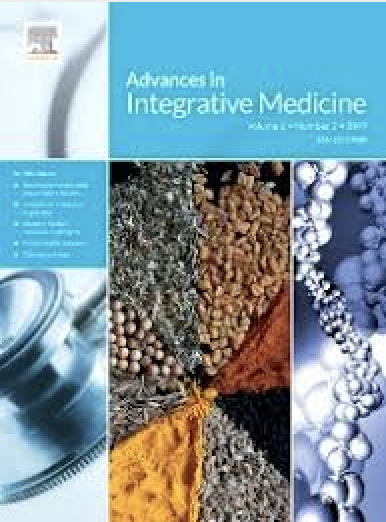
Effects of pomegranate (Punica granatum L.) peel extract supplementation on serum lipid profile and oxidative stress in obese women with knee osteoarthritis: A double blind, randomized, placebo controlled study
2021 May Advances in Integrative Medicine Haghighian MK, Rafraf M, Hemmati S, Haghravan S, Asghari-Jafarabadi M
Randomised Controlled Trial Knee Osteoarthritis Pomegranate PeelPomegranate peel extract supplementation can decrease total cholesterol and triglyceride levels while boosting antioxidant status in obese women with knee osteoarthritis.
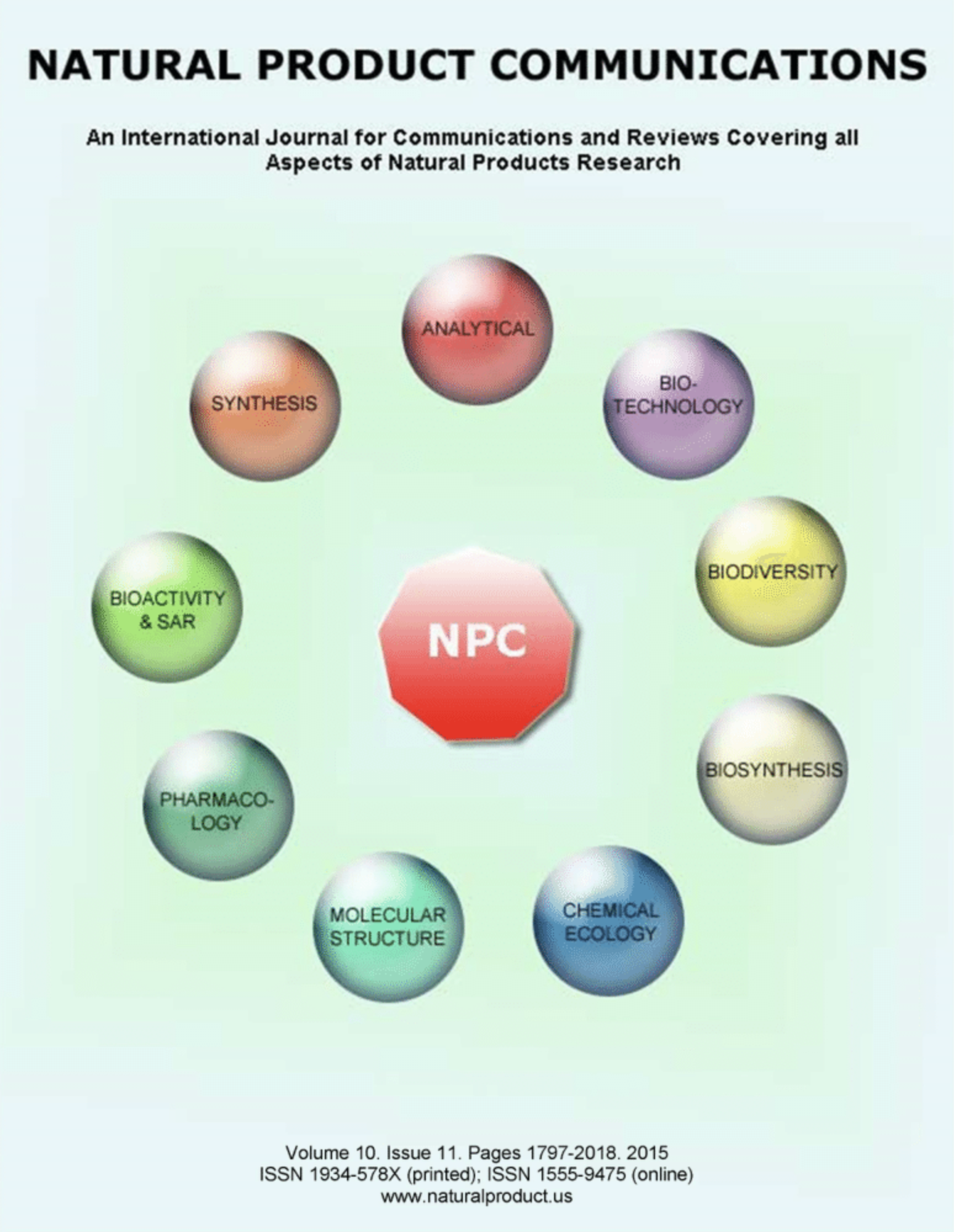
Mechanism of Salviae Miltiorrhizae Radix et Rhizoma in the Treatment of Knee Osteoarthritis Based on Network Pharmacology
2020 Dec Natural Product Communications Shi X, Zhang H, Hu Y, Li X, Yin S, Xing R, et al.
Salviae Miltiorrhizae Radix et Rhizoma (SMRR) indirectly regulates IL-17, HIF-1, TNF, and other signal transduction pathways by regulating the expression of proteins, including PTGS2, MAPK1, EGFR, and CASP3, thus playing a role in promoting chondrocyte proliferation, improving microcirculation, eliminating free radicals, and inhibiting inflammatory factors.
Network Pharmacology Knee Osteoarthritis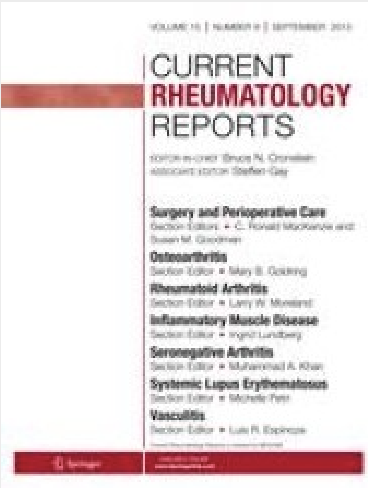
Acupuncture and Chronic Musculoskeletal Pain
2020 Sep 25 Current Rheumatology Reports Zhang YJ, Wang C
Systematic Review Knee OsteoarthritisThe majority of studies concluded the superiority of short-term analgesic effects over various controls and suggested that acupuncture may be efficacious for chronic musculoskeletal pain.
Research insights are moderated by the Research Hub team and offer an at-a-glance overview of interesting research findings.

2022 Frontiers in Physiology
Moxibustion, a form of traditional Chinese medicine, appears to be an effective and safe treatment for knee osteoarthritis.
Systematic Review Knee Osteoarthritis Moxibustion
An Overview of Systematic Reviews of Moxibustion for Knee Osteoarthritis
Yin S, Zhu F, Li Z, Che D, Li L, Feng J, et al.

2021 Advances in Integrative Medicine
Pomegranate peel extract supplementation can decrease total cholesterol and triglyceride levels while boosting antioxidant status in obese women with knee osteoarthritis.
Randomised Controlled Trial Knee Osteoarthritis Pomegranate Peel
Effects of pomegranate (Punica granatum L.) peel extract supplementation on serum lipid profile and oxidative stress in obese women with knee osteoarthritis: A double blind, randomized, placebo controlled study
Haghighian MK, Rafraf M, Hemmati S, Haghravan S, Asghari-Jafarabadi M

2020 Current Rheumatology Reports
The majority of studies concluded the superiority of short-term analgesic effects over various controls and suggested that acupuncture may be efficacious for chronic musculoskeletal pain.
Systematic Review Knee Osteoarthritis
Acupuncture and Chronic Musculoskeletal Pain
Zhang YJ, Wang C
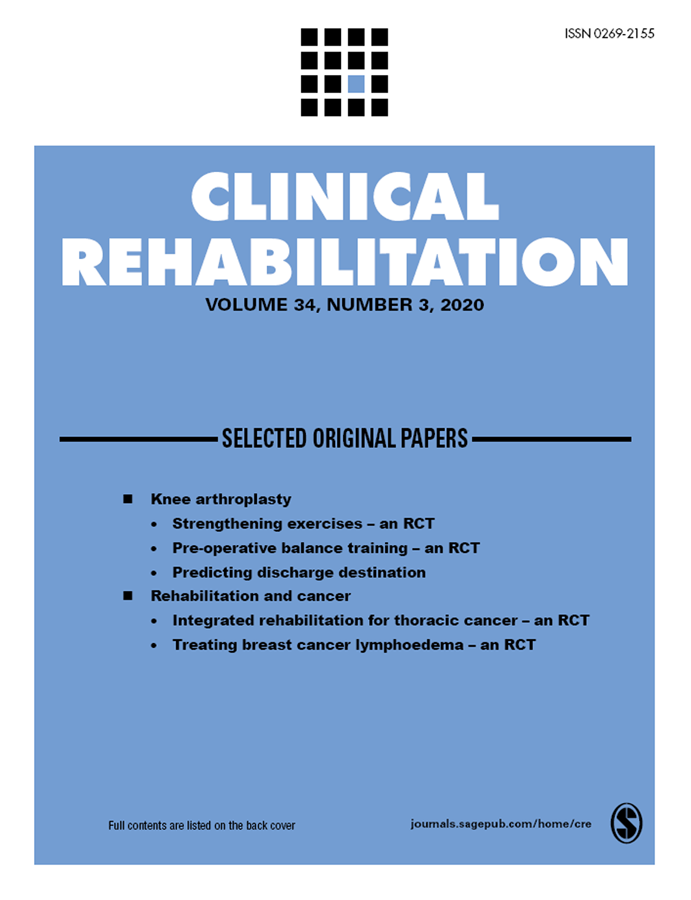
2020 Clinical Rehabilitation
Tai Chi exercise was beneficial for ameliorating physical and mental health of patients with knee osteoarthritis and should be available as an alternative non-pharmacological therapy in rehabilitation programmes.
Systematic Review Knee Osteoarthritis
Tai Chi exercise can ameliorate physical and mental health of patients with knee osteoarthritis: systematic review and meta-analysis
Hu L, Wang Y, Liu X, Ji X, Ma Y, Man S, et al.
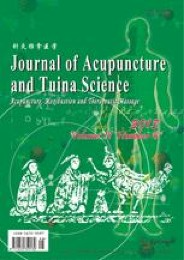
2020 Journal of Acupuncture and Tuina Science
In the treatment of knee osteoarthritis, the acupuncture group had significant advantages over sham acupuncture or no-acupuncture groups in relieving pain and improving physical function.
Systematic Review Knee Osteoarthritis
Efficacy and safety of acupuncture for the treatment of knee osteoarthritis: a systematic review and meta-analysis
Wang, Tt., Liu, Y., Ning, Zy. et al.
Review Articles
Review articles summarise and critically evaluate the current state of research on a specific topic or field by synthesising multiple primary research studies.

An Overview of Systematic Reviews of Moxibustion for Knee Osteoarthritis
2022 Feb 03 Frontiers in Physiology Yin S, Zhu F, Li Z, Che D, Li L, Feng J, et al.
Systematic Review Knee Osteoarthritis MoxibustionMoxibustion, a form of traditional Chinese medicine, appears to be an effective and safe treatment for knee osteoarthritis.

Acupuncture and Chronic Musculoskeletal Pain
2020 Sep 25 Current Rheumatology Reports Zhang YJ, Wang C
Systematic Review Knee OsteoarthritisThe majority of studies concluded the superiority of short-term analgesic effects over various controls and suggested that acupuncture may be efficacious for chronic musculoskeletal pain.

Tai Chi exercise can ameliorate physical and mental health of patients with knee osteoarthritis: systematic review and meta-analysis
2020 Sep 21 Clinical Rehabilitation Hu L, Wang Y, Liu X, Ji X, Ma Y, Man S, et al.
Systematic Review Meta-Analysis Knee OsteoarthritisTai Chi exercise was beneficial for ameliorating physical and mental health of patients with knee osteoarthritis and should be available as an alternative non-pharmacological therapy in rehabilitation programmes.

Efficacy and safety of acupuncture for the treatment of knee osteoarthritis: a systematic review and meta-analysis
2020 Jun 25 Journal of Acupuncture and Tuina Science Wang, Tt., Liu, Y., Ning, Zy. et al.
Systematic Review Meta-Analysis Knee OsteoarthritisIn the treatment of knee osteoarthritis, the acupuncture group had significant advantages over sham acupuncture or no-acupuncture groups in relieving pain and improving physical function.

The effectiveness and safety of acupuncture for knee osteoarthritis
2019 Jul Medicine Li J, Li YX, Luo LJ, Ye J, Zhong DL, Xiao QW, et al.
Systematic Review Knee OsteoarthritisAccording to high-quality outcomes, acupuncture had more total effective rate, short-term effective rate, and less adverse reactions than western medicine in treating knee osteoarthritis.
Clinical Trials
Clinical trials are research studies that involve people and are conducted to evaluate the safety and efficacy of new treatments or interventions, such as drugs, medical devices, or behavioural therapies.

Effectiveness of a Cucumber Extract Supplement on Articular Pain in Patients with Knee Osteoarthritis: A Randomized Double-Blind Controlled Clinical Trial
2022 Dec 30 Applied Sciences Pérez-Piñero S, Muñoz-Carrillo JC, Victoria-Montesinos D, García-Muñoz AM, Ávila-Gandía V, López-Román FJ
The study concludes that cucumber extract supplementation leads to a decrease in pain intensity, improvements in physical function, and decreased levels of inflammatory and cartilage degradation biomarkers.
Randomised Controlled Trial Knee Osteoarthritis Cucumber
Effects of pomegranate (Punica granatum L.) peel extract supplementation on serum lipid profile and oxidative stress in obese women with knee osteoarthritis: A double blind, randomized, placebo controlled study
2021 May Advances in Integrative Medicine Haghighian MK, Rafraf M, Hemmati S, Haghravan S, Asghari-Jafarabadi M
Randomised Controlled Trial Knee Osteoarthritis Pomegranate PeelPomegranate peel extract supplementation can decrease total cholesterol and triglyceride levels while boosting antioxidant status in obese women with knee osteoarthritis.

Electroacupuncture versus manual acupuncture for knee osteoarthritis: a randomized controlled pilot trial
2020 Feb 05 Acupuncture in Medicine Wang TQ, Li YT, Wang LQ, Shi GX, Tu JF, Yang JW, et al.
Randomised Controlled Trial Electroacupuncture Knee Osteoarthritis AcupunctureElectroacupuncture might provide stronger impact on knee osteoarthritis than manual acupuncture, though both methods are safe and feasible treatments.
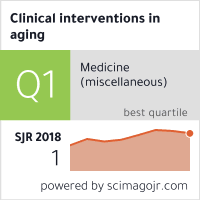
Effectiveness of Cucumis sativus extract versus glucosamine-chondroitin in the management of moderate osteoarthritis: a randomized controlled trial
2018 Oct Clinical Interventions in Aging Nash RJ, Azantsa BKG, Sharp H, Shanmugham V
Randomised Controlled TrialThe extract from cucumber, Q-Actin, is effective in reducing moderate knee osteoarthritis related pain and potentially in managing knee pain, stiffness, and physical functions.
The Effects of Pomegranate Juice on Proinflammatory Cytokines and Physical Function in Patients With Knee Osteoarthritis
2015 Sep 30 Jentashapir Journal of Health Research Ghoochani N, Karandish M, Mowla K, Haghighizadeh MH, Khorami M, Jalali MT
Pomegranate juice did not affect serum cytokine levels in patients with osteoarthritis; however, it improved physical function.
Randomised Controlled Trial Knee Osteoarthritis PomegranateStudy Protocols
Published study protocols are detailed plans that outline the objectives, methodology, statistical analyses, and organisation of a research study that have been made publicly available for others to review and use as a reference.

Acupuncture combined with traditional Chinese medicine for knee osteoarthritis: A protocol for systematic review and meta-analysis
2022 Dec 16 Medicine Wang Y, Lu Q, Guo H, Sun J, Li X, Guan H, et al.
This meta-analysis further established the efficacy of acupuncture combined with traditional Chinese medicine in the treatment of KOA. This meta-analysis aims to investigate the efficacy of acupuncture combined with traditional Chinese medicine on patients with KOA and provide reliable evidence. To provide more options for clinicians and patients in the treatment of KOA.
Study Protocol Acupuncture Chinese Herbal Medicine Knee Osteoarthritis
Chinese herbal medicine Xianling Gubao capsule for knee osteoarthritis
2022 Jan 21 Medicine Liu W, Xu D, Qi Q, Li J, Ou L
A high-quality evidence of XLGBC for the treatment of KOA will be generated from the aspects of safety and efficacy. This systematic review will provide evidence to help us confirm the clinical efficacy of XLGBC in the treatment of KOA.
Study Protocol Chinese Herbal Medicine Knee Osteoarthritis Xian Ling Gu Bao Formula
Effectiveness and safety of Tai Chi for chronic pain of knee osteoarthritis
2022 Jan 14 Medicine Guo G, Wu B, Xie S, Xu J, Zhou X, Wu G, et al.
This proposed systematic review and meta-analysis will evaluate the existing evidence on the effectiveness and safety of Tai Chi for KOA patients with CP.
Study Protocol Chronic Pain Knee Osteoarthritis
Chinese herbal medicine Yanghe decoction for knee osteoarthritis
2020 Aug 21 Medicine Xu X, Wan Y, Gong L, Ma Z, Xu T
This study will provide an assessment of the current state of YHD in the treatment of KOA, aiming to show the efficacy and safety of YHD. This study will provide evidence to judge whether YHD is an effective intervention for KOA.
Study Protocol Knee Osteoarthritis Yang He decoction Chinese Herbal MedicinePresentation Slides

Systematic Review
Moxibustion, a form of traditional Chinese medicine, appears to be an effective and safe treatment for knee osteoarthritis.
Yin S, Zhu F, Li Z, Che D, Li L, Feng J, Zhang L, Huo Z

Randomised Controlled Trial
Pomegranate peel extract supplementation can decrease total cholesterol and triglyceride levels while boosting antioxidant status in obese women with knee osteoarthritis.
Haghighian MK, Rafraf M, Hemmati S, Haghravan S, Asghari-Jafarabadi M

Systematic Review
The majority of studies concluded the superiority of short-term analgesic effects over various controls and suggested that acupuncture may be efficacious for chronic musculoskeletal pain.
Zhang YJ, Wang C

Systematic Review
Tai Chi exercise was beneficial for ameliorating physical and mental health of patients with knee osteoarthritis and should be available as an alternative non-pharmacological therapy in rehabilitation programmes.
Hu L, Wang Y, Liu X, Ji X, Ma Y, Man S, Hu Z, Cheng J, Huang F.

Systematic Review
In the treatment of knee osteoarthritis, the acupuncture group had significant advantages over sham acupuncture or no-acupuncture groups in relieving pain and improving physical function.
Wang, Tt., Liu, Y., Ning, Zy. et al.

Randomised Controlled Trial
Electroacupuncture might provide stronger impact on knee osteoarthritis than manual acupuncture, though both methods are safe and feasible treatments.
Wang TQ, Li YT, Wang LQ, Shi GX, Tu JF, Yang JW, Hou YQ, Lin LL, Sun N, Zhao JJ, Hou HK, Liu CZ
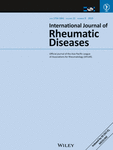
Systematic Review
Avocado-soybean unsaponifiables treatment is effective in reducing knee osteoarthritis symptoms without increasing adverse events, contrary to those with hip osteoarthritis.
Simental‐Mendía M, Sánchez‐García A, Acosta‐Olivo CA, Vilchez‐Cavazos F, Osuna‐Garate J, Peña‐Martínez VM, Simental‐Mendía LE

Systematic Review
According to high-quality outcomes, acupuncture had more total effective rate, short-term effective rate, and less adverse reactions than western medicine in treating knee osteoarthritis.
Li J, Li YX, Luo LJ, Ye J, Zhong DL, Xiao QW, Zheng H, Geng CM, Jin RJ, Liang FR

Randomised Controlled Trial
The extract from cucumber, Q-Actin, is effective in reducing moderate knee osteoarthritis related pain and potentially in managing knee pain, stiffness, and physical functions.
Nash RJ, Azantsa BKG, Sharp H, Shanmugham V

Review Article
Traditional Chinese Medicine offers potential benefits like pain relief and functional improvement for knee osteoarthritis with few adverse events.
Yang M, Jiang L, Wang Q, Chen H, Xu G

Systematic Review
Acupuncture may be effective at relieving chronic knee pain 12 weeks after acupuncture administration.
Zhang Q, Yue J, Golianu B, Sun Z, Lu Y.

Clinical Study
Pomegranate juice improves physical function and stiffness, decreases cartilage breakdown enzymes and enhances antioxidant status in patients with knee osteoarthritis.
Ghoochani N, Karandish M, Mowla K, Haghighizadeh MH, Jalali MT
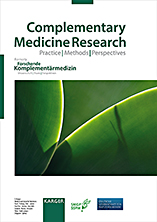
Systematic Review
Acupuncture therapy is more effective than NSAID in improving clinical efficacy rates and pain scores for treatment of chrondomalacia patellae.
Lv Z.-T.a · Li Z.-Q.b · Zhou X.c · Ma W.-W.d · Zhang J.-M.a · Chen A.-M
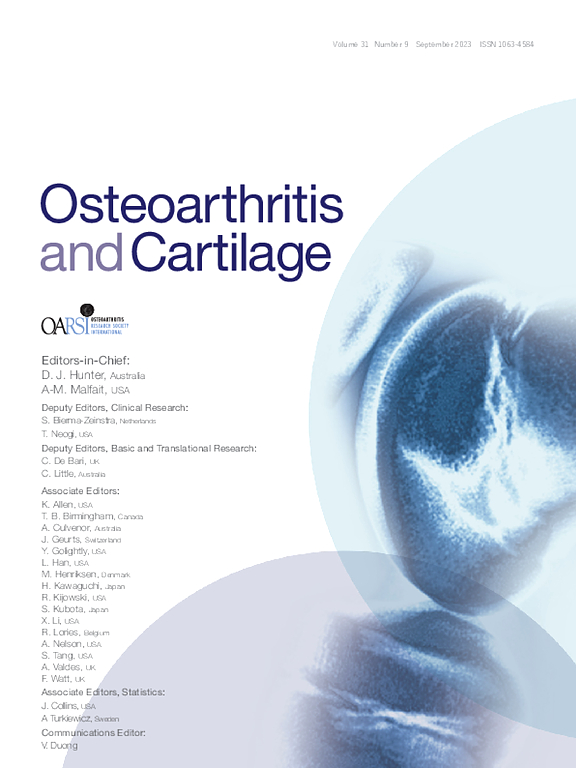
Randomised Controlled Trial
Tart cherry juice potentially helps alleviate symptoms of mild to moderate knee osteoarthritis and decreases the levels of high sensitivity C-reactive protein.
Schumacher HR, Pullman-Mooar S, Gupta SR, Dinnella JE, Kim R, McHugh MP

Randomised Controlled Trial
Tart cherry juice shows promise in easing knee osteoarthritis symptoms.
Schumacher HR, Pullman-Mooar S, Gupta SR, Dinnella JE, Kim R, McHugh MP
Executive Summary
Write an executive summary in the form of a blog article on the topic of "Research into Chinese medicine treatment for Knee Pain" summarising the research below and using language that can be easily understood by patients and avoiding medical jargon using a professional and caring tone of voice.
Write an executive summary in the form of a blog article on the topic of "Researched Chinese medicine treatments for Knee Pain" summarising the research below in an objective and easy to understand way, and using language that can be easily understood by patients. Group the article into Chinese medicine treatments first, followed by nutrition and other treatments. Avoid using medical jargon and use a professional and caring tone of voice.
Write me a concise but easy to understand executive summary on the topic of "Chinese medicine treatments for Knee Pain" based on the following research that I will give you. Your summary should be 2 paragraphs long in Australian English spelling and include references to the studies.
A Systematic Review published in 2022 in the journal Frontiers in Physiology found that Moxibustion, a form of traditional Chinese medicine, appears to be an effective and safe treatment for knee osteoarthritis. The researchers used a series of databases including Embase, PubMed, Web of Science, Cochrane Library, and others to carry out a comprehensive evaluation of previous systematic reviews on the treatment of knee osteoarthritis with moxibustion. They employed the Measurement Tool to Assess Systematic Reviews 2 to assess the methodological quality, Preferred Reporting Item for Systematic Reviews and Meta-analyses for reporting quality, and ROBIS Tool to evaluate the risk of bias in the systematic reviews. They also assessed the strength of evidence with the Grading of Recommendations Assessment, Development and Evaluation tool and carried out a meta-analysis of the total effectiveness rate. From this process, 10 systematic reviews were selected that had met their criteria. These reviews included the results of 57 randomized controlled trials involving a total of 5,149 participants. However, these reviews were found to have several critical deficiencies, scoring low on the quality scale used. Despite this, moxibustion, and its combination treatment, were shown to improve the total effectiveness rate in knee osteoarthritis. Eight of the reviews had reported adverse events but none were classified as serious in either the moxibustion group or control group.
A Randomised Controlled Trial published in 2021 in the journal Advances in Integrative Medicine found that Pomegranate peel extract supplementation can decrease total cholesterol and triglyceride levels while boosting antioxidant status in obese women with knee osteoarthritis. The research was a randomized, double-blind placebo-controlled trial involving 66 obese women aged 38 to 60 years old with knee osteoarthritis. These participants were split into two groups, the intervention group and control group, each containing 33 members. The intervention group received pomegranate peel extract capsules (500 mg) twice daily for 8 weeks including standard drug therapy while the control group was given a placebo during the same period. All participants' fasting blood samples, anthropometric measurements, dietary intake data, and physical activity levels were collected both before the start and at the end of the trial. Results analysis showed that pomegranate peel extract supplementation brought down levels of serum total cholesterol, triglyceride and an oxidative stress marker while enhancing levels of some antioxidant enzymes and the overall antioxidant capacity when compared to the control group. However, there were no noticeable alterations between the two groups in terms of low-density lipoprotein cholesterol, high-density lipoprotein cholesterol, and body mass index by the end of the experiment.
A Systematic Review published in 2020 in the journal Current Rheumatology Reports found that The majority of studies concluded the superiority of short-term analgesic effects over various controls and suggested that acupuncture may be efficacious for chronic musculoskeletal pain. We examined 16 review articles and 11 randomized controlled trials published in the last 5 years on the clinical efficacy of acupuncture in adults with CMP conditions. The available evidence suggests that acupuncture does have short-term pain relief benefits for patients with symptomatic knee osteoarthritis and chronic low back pain and is a safe and reasonable referral option. Acupuncture may also have a beneficial role for fibromyalgia. However, the available evidence does not support the use of acupuncture for treating hip osteoarthritis and rheumatoid arthritis.
A Systematic Review published in 2020 in the journal Clinical Rehabilitation found that Tai Chi exercise was beneficial for ameliorating physical and mental health of patients with knee osteoarthritis and should be available as an alternative non-pharmacological therapy in rehabilitation programmes. A total of 16 RCTs involving 986 patients with knee osteoarthritis met the established inclusion criteria. The strength of evidence for the main outcomes was low or moderate. The systematic review illustrated the efficacy of Tai Chi exercise in treating and managing knee osteoarthritis. Patients’ outcomes practising Tai Chi exercise were improved significantly, including pain, stiffness, physical function, dynamic balance, physiological and psychological health. No adverse events associated with Tai Chi exercise were reported.
A Systematic Review published in 2020 in the journal Journal of Acupuncture and Tuina Science found that In the treatment of knee osteoarthritis, the acupuncture group had significant advantages over sham acupuncture or no-acupuncture groups in relieving pain and improving physical function. Eight databases were extensively searched up to March 2018. Randomized controlled trials (RCTs) comparing the efficacy of acupuncture with sham acupuncture or no acupuncture for knee osteoarthritis were included. The Cochrane Collaboration’s tool was used for assessing the risk of bias. A total of 18 RCTs were included, involving a total of 3 522 participants. The results showed that acupuncture was superior to sham acupuncture in relieving pain and improving physical function. In comparison to the no-acupuncture group, the acupuncture group also showed significant advantages in relieving pain and improving physical function. Sensitivity analyses suggested that the results were robust, and Egger’s test found no potential publication bias.
A Randomised Controlled Trial published in 2020 in the journal Acupuncture in Medicine found that Electroacupuncture might provide stronger impact on knee osteoarthritis than manual acupuncture, though both methods are safe and feasible treatments. The study consisted of a multicenter randomized controlled clinical trial conducted in Beijing, during which 60 participants suffering from knee osteoarthritis were split into two groups: Electroacupuncture and Manual Acupuncture. Participants in both groups were treated at the same local traditional acupuncture points, with the Electroacupuncture group using an electrical apparatus. The Manual Acupuncture group experienced a sham procedure, utilizing a working power indicator but no actual current, to keep the participants blind to the experimental conditions. Over 8 weeks, both groups received 24 treatment sessions. The successfulness of the treatments was determined by response rates, pain, stiffness, functionality, and quality of life. In the results, 53 out of 60 participants completed the study. Within these participants, the response rates were 43% for the Electroacupuncture group and 30% for the Manual Acupuncture group. Differences between group outcomes were noted but not deemed statistically significant. There were low rates of adverse effects in correspondence with the two methods, which were also evenly distributed across the two groups.
A Systematic Review published in 2019 in the journal International Journal of Rheumatic Diseases found that Avocado-soybean unsaponifiables treatment is effective in reducing knee osteoarthritis symptoms without increasing adverse events, contrary to those with hip osteoarthritis. To assess avocado-soybean unsaponifiables (ASU) effectiveness and safety, a systematic review and meta-analysis of randomized controlled trials involving patients with hip or knee osteoarthritis was conducted. Various scientific databases, including Medline, SCOPUS, Web of Science, and Google Scholar, were thoroughly searched for suitable trials. Selection criteria consisted of randomized placebo-controlled trials wherein the effect of orally administered ASU on knee or hip osteoarthritis symptoms were evaluated, primarily using the Lequesne index, visual analog scale, and joint space width. The meta-analysis revealed a significant reduction in pain as assessed by the visual analog scale for those under Avocado-soybean unsaponifiables therapy, particularly for patients with knee osteoarthritis, indicated by a decrease in both the visual analogue scale and Lequesne index. However, no such significant effect was found for patients with hip osteoarthritis. In terms of safety, there were no significant differences in adverse events between patients receiving ASU and those given a placebo, confirming ASU's relative safety as a treatment option.
A Systematic Review published in 2019 in the journal Medicine found that According to high-quality outcomes, acupuncture had more total effective rate, short-term effective rate, and less adverse reactions than western medicine in treating knee osteoarthritis. Firstly, this overview provides the latest evidence on acupuncture for knee osteoarthritis based on the findings of systematic reviews, which indicated that acupuncture may have more total effective rate, short-term effective rate, and less adverse reactions in treating knee osteoarthritis than western medicine. Secondly, this overview is predesigned, which helps restrict the likelihood of biased decisions in reviewing. Thirdly, comprehensive search strategies were conducted for a wide range of data. Fourthly, independent reviewers were engaged in searching, screening, and assessing the potential studies and there was a high consistency among the reviewers.
A Randomised Controlled Trial published in 2018 in the journal Clinical Interventions in Aging found that The extract from cucumber, Q-Actin, is effective in reducing moderate knee osteoarthritis related pain and potentially in managing knee pain, stiffness, and physical functions. In this double-blind, parallel-group clinical trial conducted in three different centres, 122 patients aged between 40 and 75 years with diagnosed moderate knee Osteoarthritis were randomly divided into two groups. Over a 180-day period, one group received the cosmetically prescribed dose of 1,350 mg of glucosamine-chondroitin orally twice daily, and the other group took an orally administered 10 mg of Q-Actin (aqueous extract of cucumber) twice per day. The results showed a significant decrease in Osteoarthritis Index scores in the group that received the cucumber extract, indicating reduced pain and improved physical function. This trend was observed throughout the trial, and by the 180th day, the extract's effectiveness was substantially higher than that of the traditionally prescribed glucosamine-chondroitin. Notably, no adverse effects from the cucumber extract were reported during the trial period.
A Review Article published in 2017 in the journal PLOS One found that Traditional Chinese Medicine offers potential benefits like pain relief and functional improvement for knee osteoarthritis with few adverse events. Five electronic databases were searched up until April 2016 to study the efficacy and safety of Traditional Chinese Medicine (TCM) for treating knee osteoarthritis. The methodological quality of the included studies was evaluated using the Assessment of Multiple Systematic Reviews (AMSTAR) and the Risk of Bias in Systematic reviews (ROBIS) tools. The quality of evidence was determined using the Grading of Recommendations, Assessment, Development and Evaluations (GRADE) approach. The findings indicate that TCM potentially benefits patients with knee osteoarthritis through pain relief, functional improvement, and few adverse effects. However, deficiencies were found in the methodological quality of the reviews, such as the absence of an a-priori protocol or protocol registration, and an incomplete literature search. Furthermore, none of the studies offered a list of excluded studies. Overall, the quality of evidence in the systematic reviews was deemed poor, ranging from 'very low' to 'low'. This shortcoming was primarily due to a substantial risk of bias in the original trials, inconsistencies, and imprecision in the outcomes. Though TCM generally appears to be effective for knee osteoarthritis treatment, the evidence is not strong enough due to methodological flaws. Therefore, these findings should be approached cautiously in a clinical setting.
A Systematic Review published in 2017 in the journal Acupuncture in Medicine found that Acupuncture may be effective at relieving chronic knee pain 12 weeks after acupuncture administration. Nineteen trials were included in this systematic review. Of these, data from 17 studies were available for analysis. Regarding the effectiveness of acupuncture alone or combined with other treatment, the results of the meta-analysis showed that acupuncture was associated with significantly reduced CKP at 12 weeks on WOMAC pain subscale and VAS. As for safety, no difference was found between the acupuncture and control groups.
A Clinical Study published in 2016 in the journal Journal of the Science of Food and Agriculture found that Pomegranate juice improves physical function and stiffness, decreases cartilage breakdown enzymes and enhances antioxidant status in patients with knee osteoarthritis. In the methodology used for this study, the researchers gathered 38 patients diagnosed with knee osteoarthritis. These participants were randomly assigned into one of two groups, a control group and a pomegranate juice (PJ) group. Over a course of six weeks, each group was assessed on their clinical signs, inflammation and antioxidant status so as to understand the impact of pomegranate juice intake on these factors. The results from this study indicated significant improvements in the group that consumed the pomegranate juice, as evidenced by reductions in their total Western Ontario and McMaster Universities Osteoarthritis scores, signifying decreased stiffness and improved physical function. In addition, the serum levels of a specific protein involved in cartilage degradation (matrix metalloproteinase-13) were lowered, whilst the concentrations of an antioxidant enzyme (glutathione peroxidase) rose. This implies that pomegranate juice can potentially lessen the degenerative impact of knee osteoarthritis on joint health and improve overall patients' wellbeing.
A Systematic Review published in 2016 in the journal Complementary Medicine Research found that Acupuncture therapy is more effective than NSAID in improving clinical efficacy rates and pain scores for treatment of chrondomalacia patellae. To our knowledge, this is the first meta-analysis of acupuncture therapy in the treatment of CMP. Seven RCT involving 707 patients with CMP were selected for this meta-analysis. Based on the findings of the present systematic review, acupuncture therapy can further improve the clinical effect and pain scores when compared with NSAID controls. However, the potential beneficial effect of acupuncture is possibly overstated owing to the low general methodological quality of the included RCT. Conclusions regarding the safety of acupuncture therapy cannot be drawn since the eligible trials provide no evidence on this aspect.
A Randomised Controlled Trial published in 2013 in the journal Osteoarthritis and Cartilage found that Tart cherry juice potentially helps alleviate symptoms of mild to moderate knee osteoarthritis and decreases the levels of high sensitivity C-reactive protein. The study involved 58 non-diabetic participants with grade 2-3 osteoarthritis as categorized by Kellgren. Participants were randomly assigned to consume two 8-ounce bottles of either tart cherry juice or a placebo daily for six weeks. There was a one-week washout period before participants switched to the alternate treatment in a crossover design. The research measured participants' Western Ontario McMaster Osteoarthritis Index scores and walking times before and after each treatment. Levels of plasma urate, creatinine, and high sensitivity C-reactive protein were also noted at baseline and after each treatment. Acetaminophen was permitted as a rescue drug with self-reporting after each treatment period. There was a noticeable reduction in Western Ontario McMaster Osteoarthritis Index scores following the cherry juice treatment, an effect not observed with the placebo. High sensitivity C-reactive protein also showed a decrease during the cherry juice treatment. The reduction in high sensitivity C-reactive protein was consistent with the improvement observed in osteoarthritis index scores. However, consumption of tart cherry juice didn't significantly affect walking time, usage of acetaminophen, or plasma urate and creatinine levels.
A Randomised Controlled Trial published in 2013 in the journal Osteoarthritis and Cartilage found that Tart cherry juice shows promise in easing knee osteoarthritis symptoms. This study included 58 patients with knee osteoarthritis (OA) who were given either cherry juice or a placebo. While both groups showed some improvement in WOMAC scores, the cherry juice group experienced a 15% improvement, compared to 6% in the placebo group. However, this difference wasn't statistically significant. The cherry juice group also saw a 23% reduction in hsCRP (an inflammation marker), whereas the placebo group had a 51% increase. This suggests an anti-inflammatory effect of cherry juice. The study notes some limitations, including small sample size and the need for further research. Overall, cherry juice may offer benefits for OA patients.
Moderation Tools
Topic
Sign In
Users not signed in are limited to viewing the 5 most recent items of content.